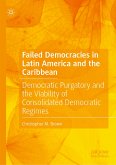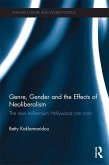The last decades have seen an increase in the use of primary elections and one-member-one-vote systems to select party leaders and election candidates.
Despite significantly increased attention to this from the contemporary political science literature, there is still a lack of truly comparative works at the European level. The book addresses this gap in our understanding by analyzing one hundred leadership elections – selecting party chairs and chief executive candidates at the national level – carried out by the mainstream centre-left and centre-right parties in five Western European countries (France, Germany, Italy, Spain and United Kingdom) over the last thirty years.
In doing so, this book proposes a new theoretical framework for empirically assessing the extent to which Western European parties have adopted more inclusive procedures of selection, and investigates the impact of these procedures on the divisiveness of leadership elections, party leaders’ survival in office and parties’ electoral performance.
Despite significantly increased attention to this from the contemporary political science literature, there is still a lack of truly comparative works at the European level. The book addresses this gap in our understanding by analyzing one hundred leadership elections – selecting party chairs and chief executive candidates at the national level – carried out by the mainstream centre-left and centre-right parties in five Western European countries (France, Germany, Italy, Spain and United Kingdom) over the last thirty years.
In doing so, this book proposes a new theoretical framework for empirically assessing the extent to which Western European parties have adopted more inclusive procedures of selection, and investigates the impact of these procedures on the divisiveness of leadership elections, party leaders’ survival in office and parties’ electoral performance.









